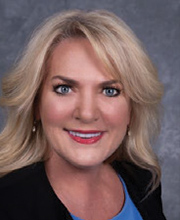What Does It Take to Become an Adult?
Kimberly Harrison PhD
Attention Magazine February 2022
Download PDF
The adult world is often more difficult to enter and navigate for those with ADHD. That’s because the process of adulting requires planning, time management, organizing, sticking to boring tasks, and other executive functioning skills.
 If that isn’t tough enough, then add a global pandemic to the struggle. Yes, during the past few years, unemployment was at an all-time high, in-person socialization came to a standstill, and virtual classrooms made college learning extraordinarily difficult for many students. We have more reasons than ever to explain why the shift to self-sufficient living might seem unmanageable for young adults with ADHD. But fear not! With a little desire and a step-by-step plan, becoming a successful adult is an achievable goal.
If that isn’t tough enough, then add a global pandemic to the struggle. Yes, during the past few years, unemployment was at an all-time high, in-person socialization came to a standstill, and virtual classrooms made college learning extraordinarily difficult for many students. We have more reasons than ever to explain why the shift to self-sufficient living might seem unmanageable for young adults with ADHD. But fear not! With a little desire and a step-by-step plan, becoming a successful adult is an achievable goal.
First, if you are wondering how to live like an adult, it’s important to realize the process involves slowly accumulating skills by setting goals, making plans, and practicing. Don’t expect perfection at first. In fact, the process of trying and sometimes failing creates resilience, which is one of the most important factors for long-term success in the adult world.
Here’s a list of things most adults manage on a daily basis. Where do you stand in each of these categories?
- Pay your share of the bills and contribute to running the household
- Maintain steady employment and/or attend school
- Go to bed at a time which allows you to get up when needed in the morning
- Independently manage your transportation
- Engage in adult-level social activities
- Have meaningful hobbies
- Manage personal health and wellness
Next, take stock of existing skills and supports. Do you have work experience? Have you finished the education you want? Do you have family members who are willing to supplement your budget? Are your friends supportive when you need a little extra help? If the answer is “yes” to these types of questions, then you are already on your way. Where there is a “no,” you have identified a category to target for improvement.
Let’s look at each of the parts of adult living listed above and consider ways to achieve a healthy lifestyle.
Moving forward
If you currently are living with parents or other family members and paying some of your own bills, then you can move forward from there by adding new responsibilities to existing ones. Often it makes sense to continue living in your family home, but if this is the case, you should be paying some of the bills and contributing to running the household. That means doing your own laundry, helping cook and clean, and paying for rent and utilities. Having a stake in whether the internet and electric bills get paid, for example, is an important step for most young adults since these utilities are critical for everyday functioning.
Moving out of the family home is another option which often makes sense for a young adult seeking independence. Before taking this step, you should create a budget to see how much money you need to earn to cover rent, food, utilities, transportation, and other necessary expenses. Make sure to add a little for unexpected issues like car repairs. Then figure out the best way to earn that income. If you are already working, you can calculate income based on your average paycheck. If you are not yet working, look online for pay estimates for a job you’d like to have and budget from there. Will you make enough to support yourself with the basics? If so, great! If not, think about ways to either add to your income or cut expenses. Having roommates often helps.
This process of budgeting is critical to living as an adult. When we live in our parent’s home it is easy to get used to luxuries that typically aren’t affordable for someone just starting out. Learning how to manage finances creates an appreciation for the things we might otherwise take for granted and helps shape what we value.
Both jobs and school are important components of transitioning to the adult world. In the beginning you might not love your job or all your classes. That’s okay. Remember, learning to deal with things you don’t like, or coming back after you’ve had a failure, develops resilience. This ability to bounce back and want something better in the future is a critical component for moving forward in life.
 Okay, let’s say you have a budget and a plan. What’s next? This may sound like a no-brainer, but the first step for being successful at work or school is to show up. That means getting up and leaving the house and going to a place where you have a planned activity. Note, if you are just getting started in your adult life, it’s best to avoid virtual classes or online workplaces. Getting out of the house changes your perspective and provides new experiences. Also, to get up feeling alert and ready for the day you must go to sleep at a time that facilitates adequate rest. Changing your sleep-wake pattern might seem difficult at first, but most people surprisingly adjust after just a short time.
Okay, let’s say you have a budget and a plan. What’s next? This may sound like a no-brainer, but the first step for being successful at work or school is to show up. That means getting up and leaving the house and going to a place where you have a planned activity. Note, if you are just getting started in your adult life, it’s best to avoid virtual classes or online workplaces. Getting out of the house changes your perspective and provides new experiences. Also, to get up feeling alert and ready for the day you must go to sleep at a time that facilitates adequate rest. Changing your sleep-wake pattern might seem difficult at first, but most people surprisingly adjust after just a short time.
Finally, after you have the routine of work and/or school managed, creating an adult social life with friends and family is important. Online activities are fine for part of your downtime, but in-person socialization and hobbies are more important. Doing things face-to-face helps develop social skills and creates balance in our lives. The virtual world is especially intriguing for those with ADHD because it taps into the ability to hyperfocus, but this often results in the overuse of online activities which gets in the way of moving forward in life.
Of course, physical exercise is an important part of living a healthy adult lifestyle, too, which usually isn’t compatible with online pursuits. Perhaps you can wake up a little earlier than usual tomorrow and take a walk around the neighborhood—you can even use that time to plan some next steps. Don’t be afraid to dream about the kind of adult life you ultimately want. Remember, all it takes is a little desire to get you started on your plan then take a step forward. You’ve got this!
 Kimberly B. Harrison, PhD, is a clinical psychologist and founder of The Conative Group, PLLC, in Houston, Texas. She works extensively with individuals with ADHD and ASD and leads an adulting program to assist with successful transition to independent adult living.
Kimberly B. Harrison, PhD, is a clinical psychologist and founder of The Conative Group, PLLC, in Houston, Texas. She works extensively with individuals with ADHD and ASD and leads an adulting program to assist with successful transition to independent adult living.
Other Articles in this Edition
Awkward in Social Situations? Ten Tips to Help
Key Challenges for Youth with ADHD During the Pandemic
Peer Support for Retirees with ADHD
As He Enters Retirement, Russell Barkley Looks Back
Challenges in ADHD Care for Children of Color
PART TWO
How to Help College and Grad Students Stay on Top of their Game
What the Pandemic Taught Us About Students with ADHD
Routines for Times of Uncertainty
Guiding Complex Teens and Young Adults to Launch

